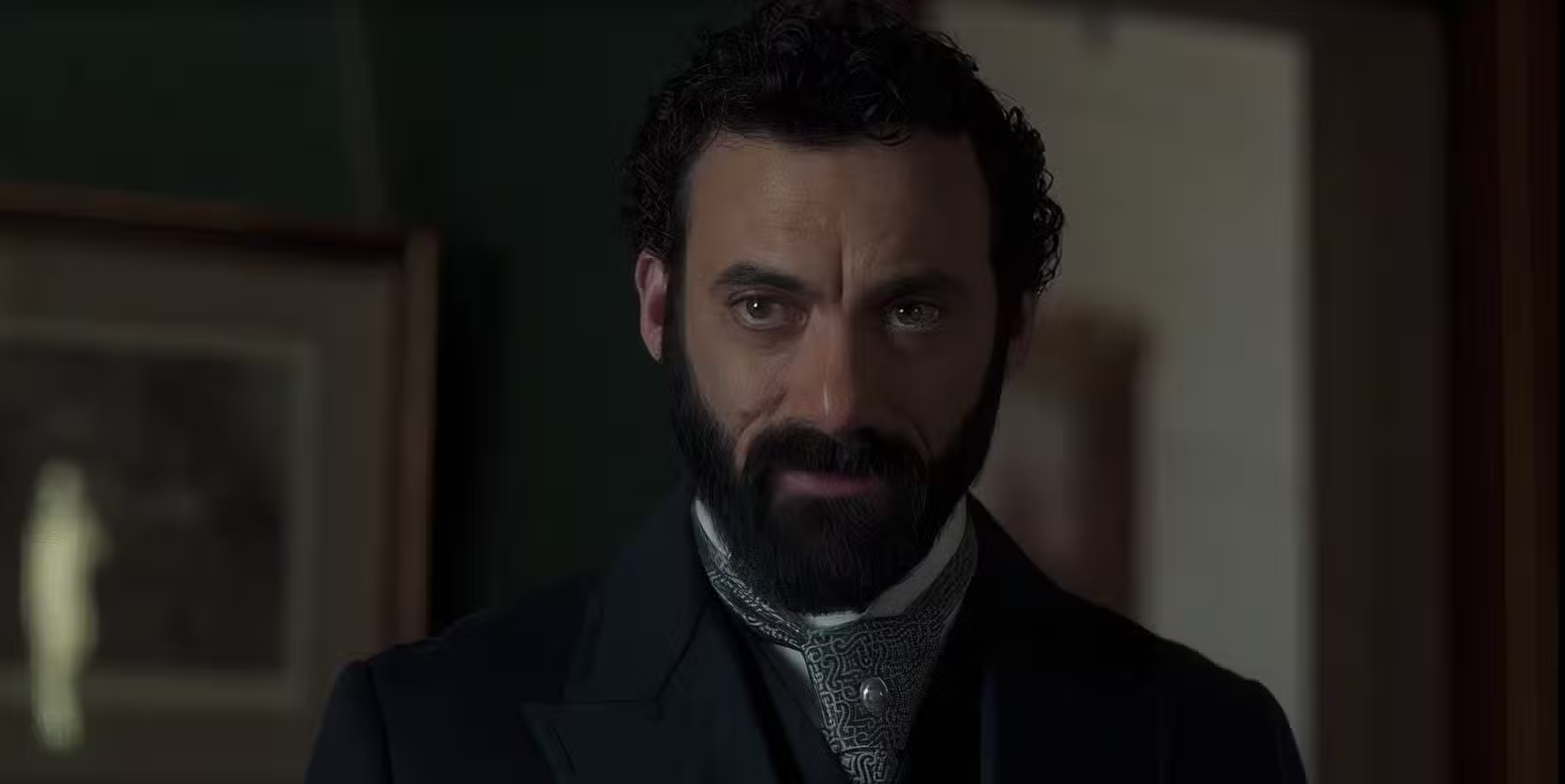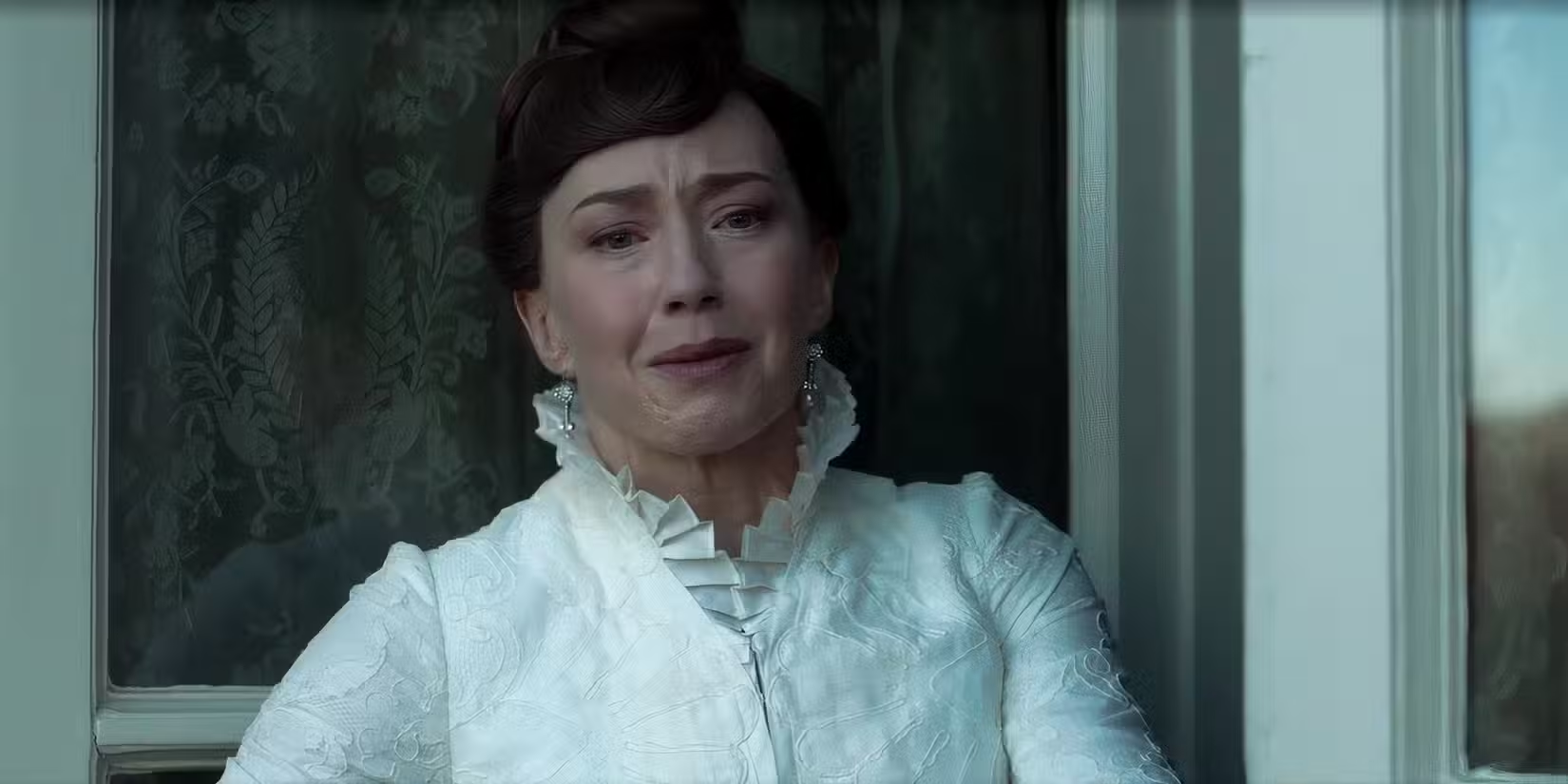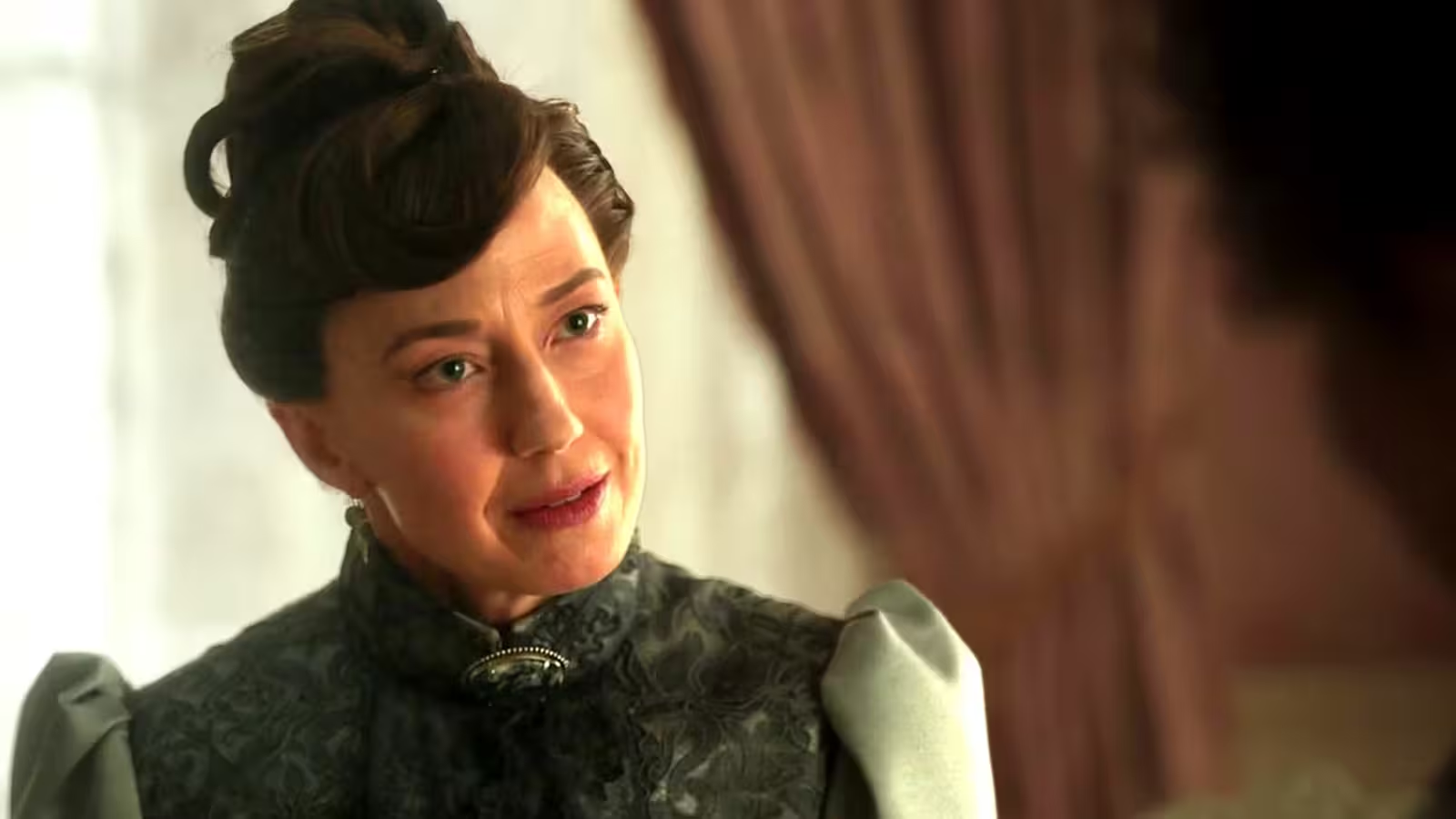6 Minutes
Season 3 Finale Recap: A Marriage in Crisis
The Gilded Age's season 3 finale, "My Mind Is Made Up," closes on a dramatic and unexpected rupture: George Russell (Morgan Spector) tells his wife Bertha (Carrie Coon) that he is leaving. The announcement lands the morning after Bertha cements her position at the pinnacle of New York society — a moment that should have been triumphant but instead becomes the catalyst for a painful unraveling. Complicating the emotional fallout is an assassination attempt on George that forces him to confront his mortality and reassess long-buried regrets, including the role he and Bertha played in arranging their daughter Gladys's (Taissa Farmiga) marriage to Hector, Duke of Buckingham (Ben Lamb).
Carrie Coon on George and Bertha: Two Sides of a Complicated Marriage
In a recent conversation with the Los Angeles Times, Carrie Coon reflected on the finale and resisted offering a neat answer about the Russells' future. She described Bertha as dogged and unwilling to bow out of the social arena, while noting that George’s near-death experience has jolted him into a rare moment of questioning his own choices. Coon framed the split as morally and emotionally complex: historically the couple have been seen as a powerful, intimate unit — loyal, politically savvy, and genuinely affectionate — but season 3 exposes tensions that have been simmering for some time.

Bertha’s Blindspot and Dramatic Irony
Coon emphasized that from Bertha’s point of view, George’s anger might feel sudden or out of nowhere. For viewers, however, the deterioration has been visible: Bertha’s relentless social climbing, her persuasive — some would say coercive — tactics, and her failure to reckon with the consequences of her decisions all foreshadowed this moment. That mismatch between character perception and audience awareness creates dramatic irony and high-stakes tension, which the finale exploits to maximum effect.
Plot Implications: Why This Matters for Season 4
Before season 3, George and Bertha were often presented as the series’ most solid marriage: a robber baron and his ambitious wife, united in business and society. George’s sudden departure threatens to undo that perception and to destabilize Bertha at the very instant she supplants Mrs. Astor (Donna Murphy) as New York’s queen of etiquette. Without a supportive husband, Bertha’s influence — both social and political — could erode, and the power dynamics within the Russell household may be up for grabs.
Divorce on the Table
The season introduced divorce as a looming possibility; what felt like an emotional separation could become a legal one. If the series moves toward divorce in season 4, that storyline would do more than shock viewers: it would explore gender, reputation, and agency in Gilded Age society, with Bertha potentially reshaping the stigma around divorced women — or paying a steep social price for it.
Cast, Crew and Production Notes
The Gilded Age is created and executive-produced by Julian Fellowes, with HBO backing the lavish period drama's cinematic production values. Season 3 continued the show’s commitment to detail: costumes that map social ambition, production design that recreates Gilded Age New York’s opulence, and a cast led by Carrie Coon, Morgan Spector, Taissa Farmiga, Ben Lamb, Donna Murphy, Harry Richardson, and Louisa Jacobson. Cinematography and costume design remain central to the show’s storytelling, often communicating character shifts and class tensions without a single line of dialogue.

Critical Reception and Audience Response
Critics praised the season for elevating personal stakes alongside the usual social maneuvering. The finale, in particular, drew attention for its emotional risk-taking: killing off a sense of marital security and introducing the specter of assassination, remorse, and public scandal. Fans have been polarized — many mourn the apparent dissolution of one of the series’ most compelling partnerships, while others celebrate the writers’ willingness to challenge expectations and delve into thorny, historically resonant issues like arranged marriages and the limited options available to women of the era.
Personal Take: Why the Breakup Works Dramatically
As a fan and critic, the Russell split feels like a bold, necessary step. It strips back the façade of social success to show the private costs of ambition — a theme central to the series. Bertha’s brilliance and force of will have long made her a fascinating protagonist; seeing her confronted with the consequences of her choices humanizes her in unexpected ways. Conversely, George’s crisis of conscience after surviving an attempt on his life opens a new emotional register for his character that could deepen the series’ moral complexity in season 4.
Looking Ahead: What to Watch for in Season 4
HBO has renewed The Gilded Age for season 4, which leaves several possibilities open: reconciliation, a high-profile divorce, or a reconfiguration of power within New York society. Subplots to watch include Gladys and the Duke’s marriage, and the potential union of Larry Russell (Harry Richardson) and Marian Brook (Louisa Jacobson). But the central dramatic engine may remain George and Bertha — two people shaped by ambition, privilege, and regret — and the series’ willingness to interrogate the costs of both.
For lovers of period drama, ensemble television, and character-driven storytelling, the finale is a reminder that The Gilded Age is not content to rest on decorative set pieces: it wants to push its characters — and its audience — into morally complicated territory.
Source: screenrant


Leave a Comment